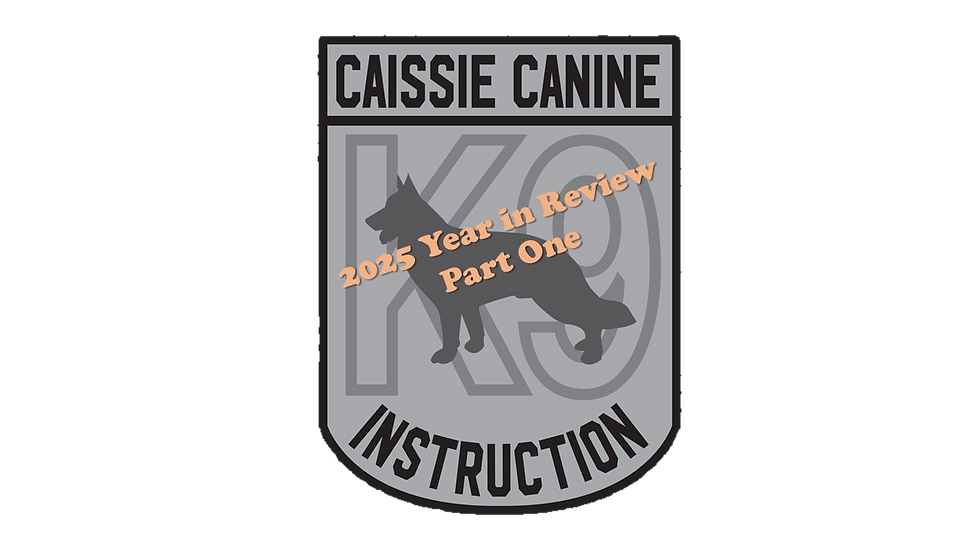Caissie Canine Instruction: How to Potty Train Your Puppy
- caissiecanineinstr

- Sep 30, 2024
- 2 min read

We begin this week’s “RUFF TAILS” featuring 2 beautiful Shih Tzu’s named Abby and Chloe.

We adopted these two sisters from a breeder, they were born June 18th. They are very playful with each other. When separated they will whine until they are reunited. They have a calm personality, no barking (well only play barking) and they are very affectionate.

No matter how many toys they have, they want what the other one is playing with. It’s so much fun watching them together. The black face is Abby and the brown one is Chloe.
Welcome to Doggie Dialogue
Learning to potty train your puppy at the right time and place is an important first step you can take for a smooth transition when your puppy first comes home.

I know some of our clients will use a crate, which is highly recommended, while your puppy is learning not to soil in the house. Most puppies/dogs will not soil in their crate, as puppies/dogs are very clean animals by nature. If there is a medical issue, such as bladder infections or urinary infection then there could be “accidents” in the crate.

When your puppy is in the crate, and they begin to whine, and scratch let them out and take them right outside immediately to go pee.
We recommend creating a housetraining schedule. Stay consistent with this, it is crucial to your success. Remember puppies have a small bladder and need to go outside more often.

Make sure you are giving your puppy ample opportunity to go “pee” often. A good guide to follow is if your puppy is 3 months, then approximately 3 hours maximum is all that your puppy will be able to “hold it”, 6 months, 6 hours and so on.
We recommend letting your puppy out first thing in the morning and last thing at night.

If your puppy as been playing indoors, eating, drinking, or chewing on a toy, take a break and let them out for a quick pee.

We also recommend when your puppy wakes up from a nap, then go right outside. If you catch your puppy getting ready to squat or defecate, pick them up and rush them outside. If they do their “business” outside give them plenty of praise and attention.

Remember when it comes to housetraining prevention is key.

Having a “puppy supply kit” to clean up accidents is a great idea. We recommend having a pet stain enzymatic cleaner on hand. Having a cleaner that eliminates odors will assist in your puppy not “marking” the same location repeatedly.
If you need any assistance with this behaviour, please feel free to reach out to Paul anytime.




Comments